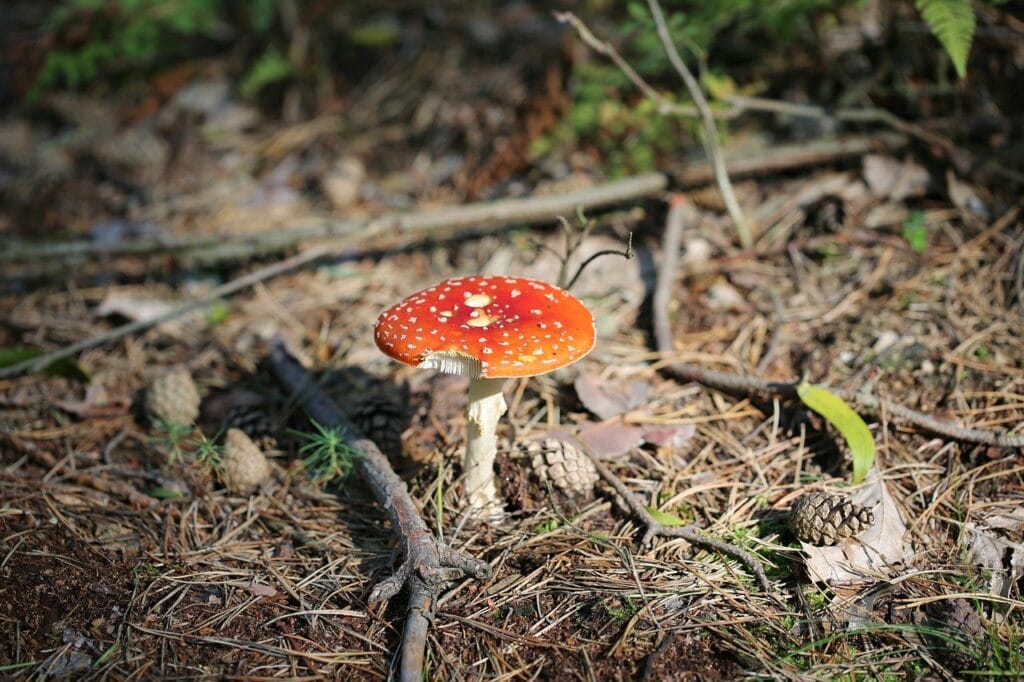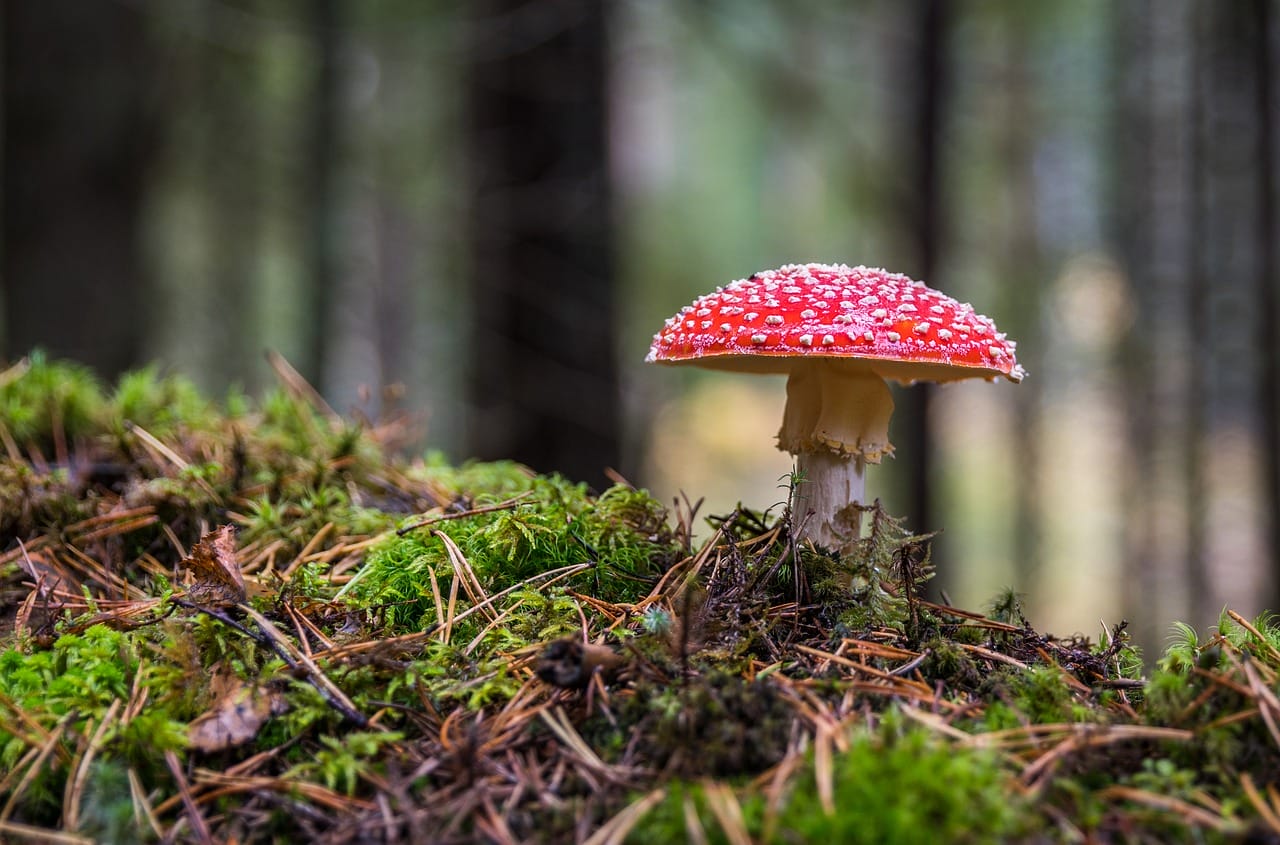Throughout history, humans have observed and intentionally utilized the psychedelic characteristics of certain plants and fungi.
Among these, fungi, particularly so-called magic mushrooms, are identified as a primary natural source of psychedelic substances.
Psilocybin, a psychedelic substance derived from mushrooms, holds an important role in history, being utilized in religious rituals and therapeutic practices.
Many researchers are currently exploring the potential health benefits of shrooms online. Existing studies have shed light on the effects of psilocybin mushrooms, providing hope to many individuals and sparking a conversation about their integration into Canada’s healthcare system.
Key Highlights:
- Magic mushrooms, containing the psychoactive substance psilocybin, offer numerous potential benefits for addressing mental health concerns in Canada.
- Psilocybin is safer than opioids, presenting a lower risk of addiction and toxicity.
- Psilocybin demonstrates long-lasting efficacy in treating depression, with effects that can endure for up to a year.

Delving into Psilocybin
Psilocybin, a tryptamine derived from magic mushrooms, bears structural similarities with lysergic acid diethylamide (LSD). Its effects, which include hallucinogenic and euphoric experiences, are likely due to its interaction with serotonin (5-HT) receptors in the central nervous system.
With its distinct interaction with serotonin receptors, premium magic mushrooms show a unique potential in aiding the management of mental health conditions.
The Mental Health and Opioid Crisis in Canada
Prevalence of Mental Health Disorders in Canada & Treatment Resistance
| 2012 | 2022 | |
| Major Depressive Episodes | 4.7% | 7.6% |
| Generalized anxiety disorder | 2.6% | 5.2% |
| Social phobia | 3.0% | 7.1% |
| Alcohol use disorder | 3.2% | 2.2% |
More than a third (36.6%) of people dealing with mood, anxiety, or substance use disorders expressed unfulfilled or insufficient healthcare and mental health needs.
An academic paper from the Canadian Journal of Psychiatry shed light on the care-seeking behavior of depression patients. The study examined 1282 patient records collected from 135 physicians. Two hundred sixty-three patients were found to have treatment-resistant depression (TRD), implying a prevalence rate of 21.7% across the country.
Opioid Crisis
Approximately 8 million Canadians, which is one in every five, are affected by chronic pain. If not managed properly, pain can negatively affect different areas of a person’s life.
Medical experts sometimes recommend the use of opioid medications to manage pain. Despite their potential benefits like pain relief and improved functionality, opioids also come with possible hazards.
Between January 2016 and March 2022, at least 30,843 deaths related to opioid toxicity were recorded in Canada. The peak of these tragic events happened in early 2021, with a staggering 5,368 cases reported. It’s crucial to highlight that over 88% of these cases were in the provinces of British Columbia, Ontario, and Alberta.
For Major Depressive Episodes
In a research study published in the Journal of Psychopharmacology, 27 individuals with a long history of depression were included. The majority of these individuals had been dealing with depressive symptoms for around two years before the study. 88% of these individuals had previously received traditional antidepressant treatments, and 58% reported current usage of such medications during their depressive episodes.
The study found considerable reductions in depression following psilocybin treatment for both groups. The severity of depression was also observed to remain consistently low at one, three, six, and 12 months after treatment.
For General Anxiety and Social Phobia
A case study published in the Croatian Medical Journal in October 2021 explored HTML:
The narrative revolves around a
A solitary 16-year-old boy, struggling with severe anxiety and declining academic performance, sought help at a mental health clinic. His isolation, coupled with a learning disability and a lack of motivation for schoolwork, compounded his struggles. Group therapy, in particular, appeared overwhelming and unproductive to him.
Over the course of 18 months, three psilocybin sessions led to noticeable improvements in his condition. He experienced a decrease in anxiety and an improvement in his communication skills with peers and teachers. Additionally, he became more expressive with his emotions, actively participated in group therapy, and enjoyed improved interpersonal relationships.
In the Case of Alcohol Use Disorder
A recent clinical trial, as reported in a study published in JAMA Psychiatry on August 24, unveiled the potential of psilocybin combined with psychotherapy as a treatment for alcohol use disorder. The researchers tracked the progress of 93 patients battling this condition over a period of 32 weeks.
Out of the 48 individuals who underwent psilocybin-assisted therapy, there was a significant 83% decrease in alcohol consumption within eight months of their first dose. This result compares to a 51% reduction in the placebo group. Remarkably, nearly half of the participants administered psilocybin ceased drinking entirely.
Addressing the Opioid Crisis
Elena Argento, a postdoctoral fellow at the University of British Columbia and BC Centre on Substance Use, is exploring the medicinal use of psychedelics.
According to Argento, psilocybin has a dual-function in reducing addiction risks: it affects both neurobiology and psychology. She underscores the transformative experiences psychedelics can create, characterized by a profound sense of awe and self-transcendence. These experiences often facilitate individuals in discovering new life interpretations and purposes, potentially catalyzing behavioral changes, particularly in relation to addiction.
In a recent study led by Argento and the BC Centre on Substance Use, the research demonstrated a significant decrease in the chances of continued daily illicit opioid use among those who had recently used psychedelics or had done so in the past six months.
Argento’s 2018 study also suggested that psychedelic use could act as a protective factor against the link between prescription opioid use and suicide risk.
Another study discovered connections between the use of psilocybin and a lower risk of opioid use disorder. This earlier research pointed to a 40% decrease in the risk of opioid misuse and a 27% reduction in the likelihood of opioid dependence over the
This past year saw a surge in psychedelic use.
Health Canada and Other Regulatory Agencies Should Consider Psilocybin as Part of Canada’s Health Strategy
Despite the recognition of Psilocybin’s potential positive impact on Canadians’ mental health, obtaining it remains a challenge. Health Canada allows healthcare providers to prescribe this treatment under the Special Access Program. Nevertheless, the program’s strict regulations present a considerable barrier for many providers and patients.
The therapeutic use of psilocybin-infused mushrooms could revolutionize mental health care in Canada, offering potentially transformative benefits. Instead of relying on traditional, often less effective treatments like pharmaceuticals or opioid replacement therapy, psilocybin therapy presents an alternative with the potential for deep, lasting effects.
Studies suggest that psilocybin therapy could have enduring benefits, possibly saving patients significant expenses on ineffective treatments. Additionally, research indicates that psilocybin is relatively safe, with low toxicity, minimal risk of misuse, and infrequent cases of overdose.
Where Can Online Psilocybin be Procured?
Canadians who find it challenging to access psilocybin therapy can purchase magic mushrooms online to address their current needs. They can explore an array of magic mushroom products, from high-dose shrooms to microdose magic mushrooms.
High-dose shrooms consist of psychedelic mushrooms available in various forms, like dried magic mushrooms, edibles, or drinks, which are ingested for their hallucinogenic and therapeutic effects.
Microdosing magic mushrooms involves products containing small amounts of magic mushrooms. These products are available in capsules, shroom edibles, or shroom tea. Buying shrooms online offers an alternate way to subtly experience the benefits of these mushrooms. Magic Mushies Canada exclusively sells top-quality magic mushrooms online, ensuring maximum quality.
Is Psilocybin a Suitable Option for Canadian Healthcare?
Psilocybin is a substance often misunderstood because of its recreational use. It’s important to note that psilocybin has a safer profile than opioids and other drugs typically prescribed in healthcare settings.
There is a growing body of evidence suggesting its potential benefits, similar to those of marijuana, in treating a variety of mental health conditions. dimensions of reality.
Magic mushrooms have a long history of being utilized for mental health care and fostering individual growth from a wellness point of view.
What risks and side effects might magic mushrooms present?
Magic mushrooms can trigger a range of reactions, both beneficial and detrimental. These can encompass hallucinations, modified perception, and psychological shifts. On the negative side, they may provoke nausea, vertigo, and in rare circumstances, psychological distress. It’s crucial to approach the consumption of magic mushrooms with prudence and reverence, recognizing the potential hazards. Always consult with a healthcare provider before initiating any new protocol involving magic mushrooms.
Is purchasing magic mushrooms online safe?
Buying magic mushrooms online can be secure, as long as you select a trustworthy source. It’s paramount to do comprehensive research about the product, brand, and the online dispensary before making any purchase. Customer feedback and ratings are valuable signs of product quality and the dependability of the service. Always opt for dispensaries that give prominence to customer safety and satisfaction, and provide safe payment methods.
Is it possible to cultivate magic mushrooms on my own?
Yes, you can grow magic mushrooms at home, and it can be a rewarding endeavor. However, it demands specific conditions and a comprehensive understanding of the cultivation process. Numerous kits and guides are available online to aid you in your home cultivation project. But, keep in mind that the legality of growing magic mushrooms varies based on your location, so ensure you comply with your local laws and regulations.
In the realm of wellness, some people opt for a more measured approach, consuming small amounts of mushrooms to exploit their benefits without triggering hallucinations.
Articles You Might Find Intriguing:





